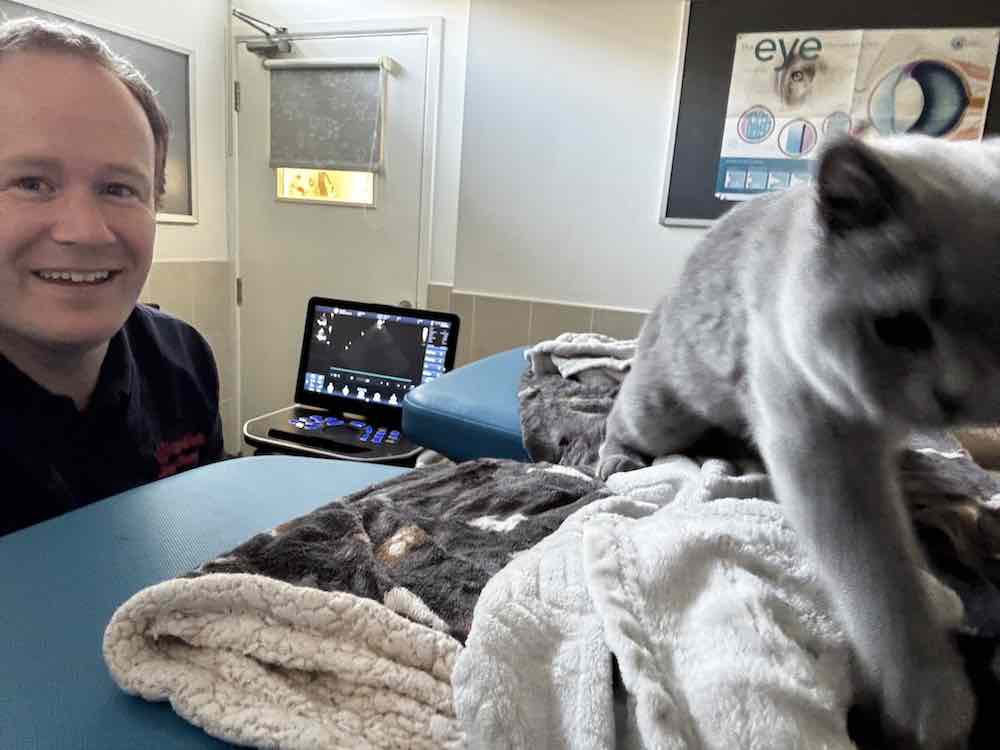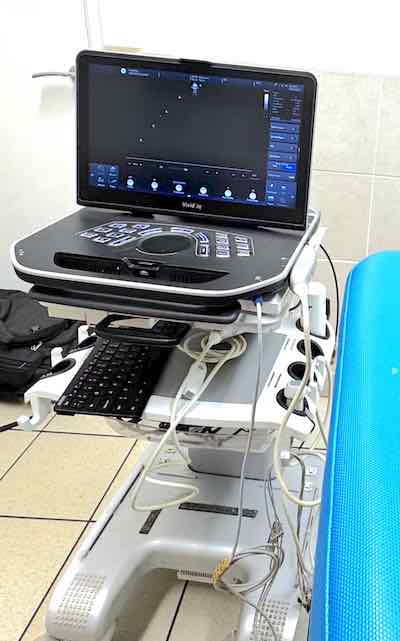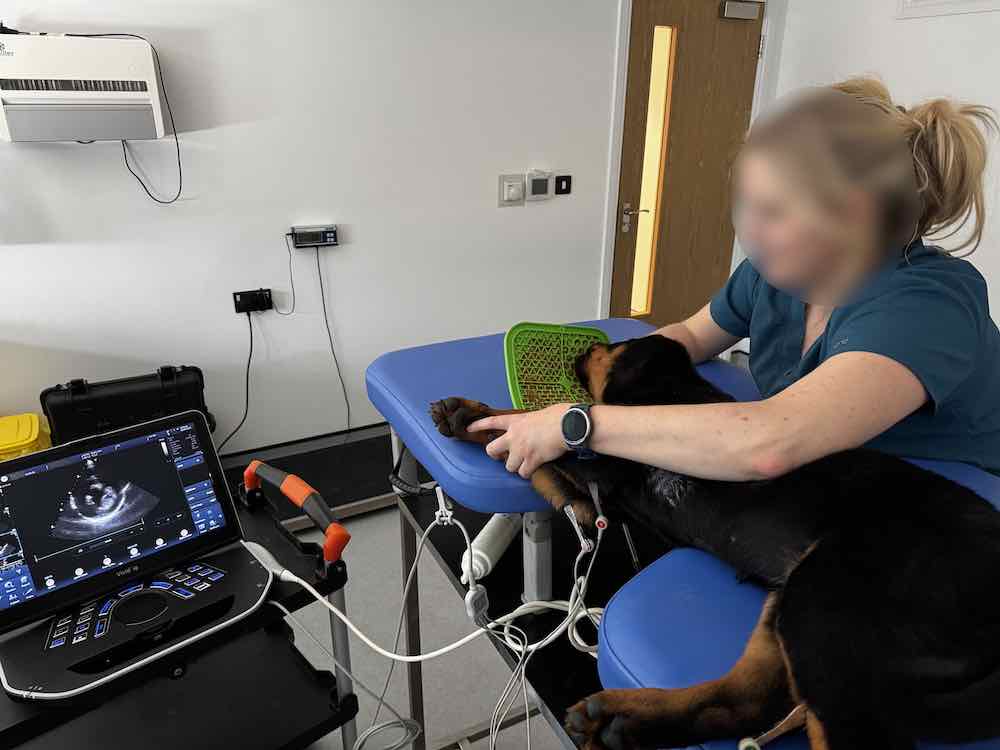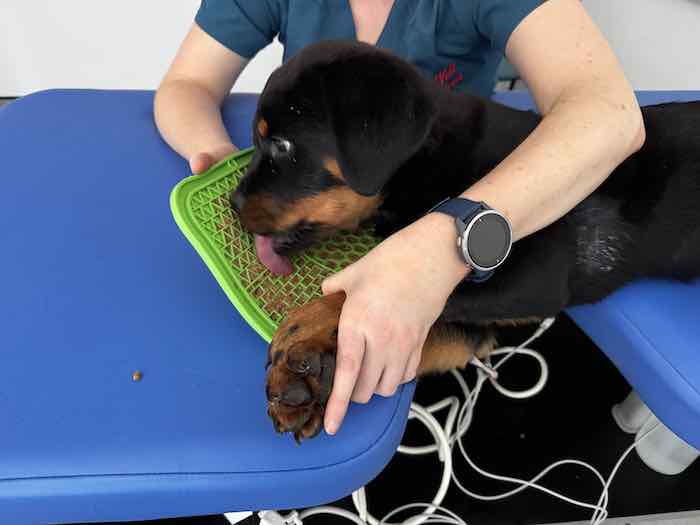What is an Echo?
❤️ Has Your Vet Recommended an Echo? What Does This Mean for Your Pet?
Published on: March 11, 2025
Reviewed on: March 11, 2025

Has your vet recommended an “echo” for your pet? Wondering what it involves? Or maybe you need one yourself and found this post by chance? Either way, the information here applies to both human and veterinary cardiology!
An “echo” is shorthand for echocardiogram, a specialized ultrasound scan of the heart. It uses high-frequency sound waves—far beyond what humans or animals can hear—to create real-time images of the heart in motion.
Technically, any ultrasound image is an “echo,” but in medicine and veterinary care, the term is usually reserved for heart scans.
Why Perform an Echo?
We love echocardiograms because they give far more information about the heart than most other tests. Instead of just guessing based on symptoms or electrical activity, we can actually see the heart in action.
What Can an Echo Show?
A high-quality echocardiogram provides a detailed look inside the heart, including:
✅ The size of each heart chamber (left atrium/ventricle, right
atrium/ventricle)
✅ How well the heart is contracting (systolic
function)
✅ Abnormalities in heart walls (thickening, thinning, scars,
infarction, or even tumors)
✅ How well the heart valves are moving and functioning
✅ Signs of blood abnormalities (clots, coagulation)
✅ Rarely, even parasites like heartworm!
Doppler: The Magic of Measuring Blood Flow
Doppler ultrasound adds another dimension by detecting blood movement. Using sound waves, it can measure:
🔹 Normal blood flow through heart chambers &
valves
🔹 Leaky valves (regurgitation)
🔹 Narrowed or blocked valves
🔹 Abnormal blood flow due to heart defects (e.g.,
shunting between chambers)
An ECG (electrocardiogram) is often run simultaneously to help with timing and rhythm assessment.
That’s a Lot of Information!
Right? A complete echocardiogram involves capturing multiple video loops of the heart beating from various angles. This lets us fully assess heart structure and function.
Advanced techniques—such as 3D imaging, transesophageal scans, tissue Doppler, and AI-assisted analysis—are being developed but aren’t always necessary in veterinary cases.

Who Should Perform the Echo on My Pet?
Not all echocardiograms are equal! The skill of the operator and the quality of the ultrasound machine greatly affect the results.
Choosing the Right Professional
- In human medicine, trained echocardiographers follow strict accreditation standards.
- In veterinary medicine, formal accreditation is still developing. (As of 2025, consensus guidelines are still being finalized.)
- Ideally, look for a specialist cardiologist with a diploma or advanced practitioner status for the most detailed and accurate scan.
General veterinarians may perform basic echocardiograms, but their level of detail often varies. If your vet suggests an echo, ask:
✔ Who will perform it?
✔ What is their experience level?
✔ Would a specialist provide better insights?
It’s common for a general vet to perform an initial scan and then refer to a specialist if the case is complex. However, specialist scans do come at a higher cost.

What Happens During an Echo?
The Procedure
📌 Your pet is usually positioned on a special table
with a cut-out section, allowing the ultrasound probe to be placed under
their chest.
📌 Helpers hold them still and reassure them during the
scan.
📌 Shaving a small area on the chest allows better
ultrasound contact.
📌 ECG leads (pads or clips) are attached to monitor
the heart’s rhythm.
For large dogs, the scan may be performed while standing, which can be more challenging.
Will My Pet Need Sedation?
- Many pets tolerate echocardiograms without sedation.
- Cats are more likely to need mild sedation than dogs.
- We use gentle handling and calming techniques first to avoid unnecessary sedation.

How Long Does It Take?
⌛ 20–30 minutes to capture images.
⌛ Another 20–30 minutes to measure and interpret
results.
This depends on the patient’s cooperation. If they are very wiggly or anxious, it can take longer.
When Will I Get the Results?
📊 The images are available instantly, and most veterinary cardiologists will discuss findings on the same day.
However, some clinics review cases with a higher-level specialist, which may cause a slight delay.
Final Thoughts
An echocardiogram is one of the most powerful tools for assessing heart health in pets. If your vet recommends one, knowing what to expect—and who is performing it—will help you make the best decision for your pet’s care.
Check out my video on the same topic if you want to know more:
What is an Echo? A Veterinarian Explains.

